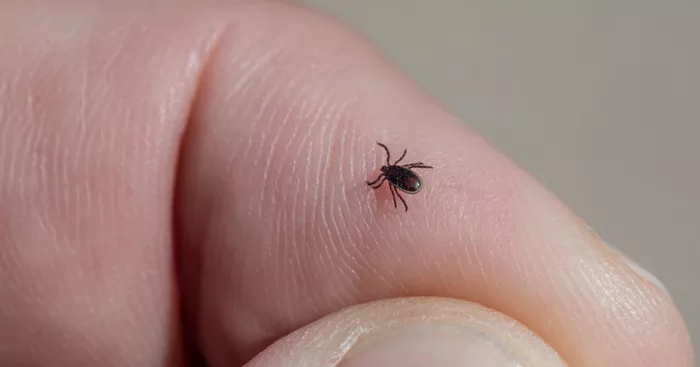In recent years, there has been growing awareness of a peculiar and serious allergic reaction known as Alpha-Gal Syndrome (AGS). This condition, triggered by a tick bite, can lead to a sudden and potentially severe allergy to red meat. As this syndrome gains more attention, it becomes crucial to understand its origins, symptoms, diagnosis, and management. This article delves deeply into Alpha-Gal Syndrome, exploring how a simple tick bite can profoundly alter dietary habits and impact overall health.
Understanding Alpha-Gal Syndrome
Alpha-Gal Syndrome (AGS) is an allergy to galactose-α-1,3-galactose (alpha-gal), a carbohydrate found in most mammals, but not in fish, reptiles, birds, or humans. This syndrome is unique because it is one of the few food allergies known to be triggered by a tick bite. The Lone Star tick (Amblyomma americanum) is primarily responsible for transmitting the alpha-gal molecule to humans.
The Lone Star Tick: The Primary Culprit
The Lone Star tick, identified by the distinctive white dot or “lone star” on the back of adult females, is predominantly found in the southeastern and eastern United States. However, its range is expanding due to changes in climate and animal migration patterns. This tick is aggressive and known for its tendency to bite humans, which increases the risk of transmitting alpha-gal.
How the Tick Bite Triggers Alpha-Gal Allergy
When the Lone Star tick bites a human, it introduces alpha-gal into the bloodstream. This process triggers an immune response, causing the body to produce antibodies against alpha-gal. Subsequent consumption of red meat, which contains alpha-gal, can then provoke an allergic reaction. The delay in reaction, typically 3-6 hours after consumption, is characteristic of AGS and differs from other food allergies that often manifest immediately.
Symptoms of Alpha-Gal Syndrome
The symptoms of Alpha-Gal Syndrome can vary widely in severity and may include:
Hives or rash: Raised, red, itchy areas on the skin.
Gastrointestinal issues: Nausea, vomiting, diarrhea, and abdominal pain.
Respiratory symptoms: Difficulty breathing, wheezing, and nasal congestion.
Anaphylaxis: A severe, potentially life-threatening allergic reaction that can include swelling of the lips, tongue, or throat, difficulty breathing, and a drop in blood pressure.
The delayed onset of symptoms, occurring several hours after eating red meat, can complicate the diagnosis and identification of the allergy.
See Also: What is the Best Way to Improve Cardio Respiratory Endurance?
Diagnosing Alpha-Gal Syndrome
Diagnosing AGS involves a combination of medical history, symptom observation, and specific testing. Key steps include:
Detailed patient history: Healthcare providers will inquire about tick bites, dietary habits, and the timing of symptoms relative to food intake.
Skin prick test: This test can help identify allergies by exposing a small area of the skin to alpha-gal and observing any reaction.
Blood test: Measuring the levels of alpha-gal-specific IgE antibodies in the blood can confirm the diagnosis.
Given the delayed reaction and the wide range of possible symptoms, a thorough and careful diagnostic process is essential.
Management and Treatment of Alpha-Gal Syndrome
Once diagnosed with AGS, managing the condition involves strict dietary changes and preparedness for allergic reactions. Key strategies include:
Avoidance of red meat: Patients must eliminate all forms of red meat, including beef, pork, lamb, and venison, from their diet. Some processed foods containing gelatin, dairy, or other mammalian products might also need to be avoided.
Reading labels: Being vigilant about ingredient lists on food packaging to identify and avoid hidden sources of alpha-gal.
Emergency preparedness: Patients should carry an epinephrine auto-injector (EpiPen) at all times in case of severe reactions. It is also advisable to wear medical alert bracelets to inform others of the allergy in emergencies.
Living with Alpha-Gal Syndrome
Living with AGS requires ongoing vigilance and lifestyle adjustments. Here are some tips for managing daily life with AGS:
Educating oneself and others: Understanding the condition thoroughly and educating family, friends, and healthcare providers about the risks and necessary precautions.
Dietary adjustments: Finding alternative protein sources such as poultry, fish, legumes, and plant-based proteins. Many patients find it helpful to consult with a nutritionist or dietitian to ensure they are meeting their nutritional needs.
Social considerations: Navigating social situations like dining out or attending events where food is served. Communicating clearly with hosts or restaurant staff about the allergy is crucial to prevent accidental exposure.
Prevention: Reducing Tick Exposure
Preventing AGS involves minimizing tick bites through various strategies:
Personal protection: Wearing long sleeves and pants, using tick repellents, and performing thorough tick checks after spending time outdoors.
Landscape management: Reducing tick habitats by maintaining a tidy yard, removing leaf litter, and using tick control products on pets.
Public health initiatives: Supporting efforts to control tick populations and educate the public about tick-borne diseases.
Conclusion
Alpha-Gal Syndrome is a complex and challenging condition resulting from a seemingly innocuous tick bite. The discovery that a tick bite can lead to a red meat allergy underscores the intricate connections between humans, animals, and the environment. Awareness, education, and research are crucial in addressing this emerging health issue. By understanding AGS and taking proactive measures, individuals can manage their condition effectively and maintain a good quality of life despite the dietary restrictions it imposes.
[inline_related_posts title=”You Might Be Interested In” title_align=”left” style=”list” number=”6″ align=”none” ids=”10043,9939,9887″ by=”categories” orderby=”rand” order=”DESC” hide_thumb=”no” thumb_right=”no” views=”no” date=”yes” grid_columns=”2″ post_type=”” tax=””]
































